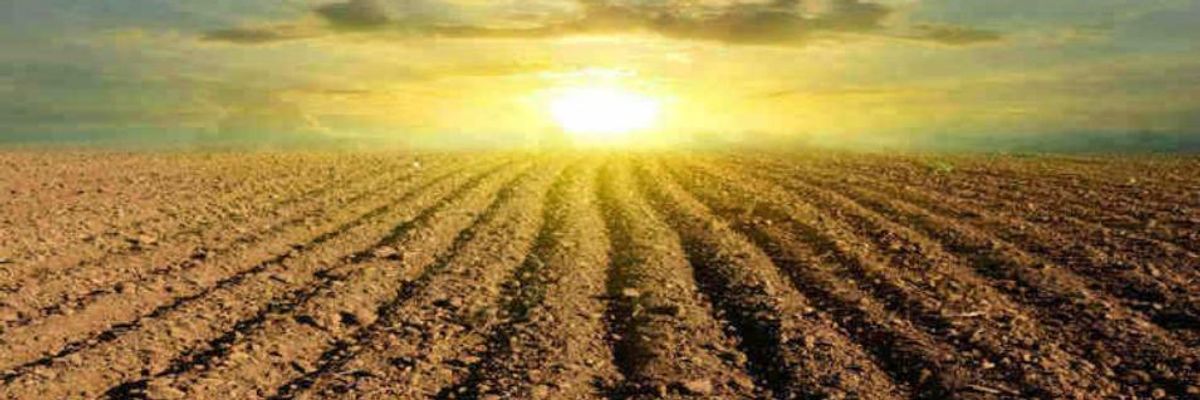"The soil is the great connector of our lives, the source and destination of all," Wendell Berry penned in his 1977 book, The Unsettling of America. The key to robust crop yields, well-fed livestock, and clean water systems, soil is the foundation for life on earth.
However, for a multitude of reasons, including modern agricultural practices, especially "tillage-based agriculture," deforestation, and overgrazing, the world's soil is at risk. According to the World Wildlife Fund (WWF), "Half of the topsoil on the planet has been lost in the last 150 years." Additionally, "as a result of erosion over the past 40 years, 30 percent of the world's arable land has become unproductive." Cornell ecology professor, David Pimentel, states the issue succinctly, saying "soil erosion is second only to population growth as the biggest environmental problem the world faces."
In response to this global problem, organizations around the world have made soil protection and soil health a priority.
For instance, the Global Soil Partnership (GSP) focuses on five "pillars of action." These pillars include the advancement of ecologically sound soil management, the promotion of "investment, technical cooperation, policy, education awareness and extension in soil," encouragement of soil research, improvement of the amount of and quality of soil data, and the "harmonization of methods, measurements and indicators for the sustainable management and protection of soil resources."
Another example is the Community of Practice for Conservation Agriculture (CA-CoP) which was created during a Soil Health Workshop at the Food and Agriculture Organization of the United Nations (FAO) to promote "Conservation Agriculture" (CA). The goal of CA is to "achieve sustainable and profitable agriculture" by endorsing "minimal soil disturbance, permanent soil cover and crop rotation." Since 2001 the "World Congress process on CA," supported by the FAO and other global stakeholders, means that CA is now promoted as a "basis for sustainable production intensification" for small to large scale farms.
In February of this year, the G8 Food Security Working Group, titled "Healthy Soil for Future Generations," met to review the current threats to global soil health. Members of the FAO, World Bank, Global Forum on Agriculture Research, and soil experts from around the world were invited to offer insight into the issue.
The working group's discussion centered around understanding the current state of the world's soil health and the possibility of the G8 countries - which includes Canada, France, Germany, Italy, Japan, Russia, United Kingdom, and the United States - reaching "zero net land degradation by 2020." Additional priorities established included taking "stock of the land and soil required to maintain soil fertility," "greater use of conservation agriculture," and "management practices for climate change adaptation."
Despite political setbacks occurring shortly after the February G8 meeting, the upcoming 2015 International Year of Soils (IYS) and World Soil Day, on December 5th of this year will create international awareness for the role that soil plays in the global ecosystem, agriculture outputs, and community development. The need for policies that protect soil, investment in sound soil management, and the connection of soil to larger international development goals will also be served by IYS and World Soil Day.
